
Dremel Workstation 220 Review
Manufacturer: DremelUK Price (as reviewed): £34.99 (inc VAT)
US Price (as reviewed): $43.32 (ex TAX)
Dremel is by far the most popular manufacturer of rotary tools, but aside from great build quality and reasonable price (take a look at our reviews of the Dremel 300 and 4000), its the range of compatible accessories that persuades many to opt for a Dremel than another brand.
As well as the head accessories, there's a plethora of attachments too, that turn the humble rotary tool into something more suitable for drilling or sanding for example. The Flexible Shaft attachment allows for more detailed work to be carried out, but there are bigger and better attachments available for more heavy duty work.
One of these is the Workstation 220, which is a kind of strange drill press hybrid, specifically made for Dremel's rotary tools, such as the 4000 series that we'll be testing it with. A standard electric drill is fine for most tasks, but a drill press can be much more precise thanks to the drill bit being held square for its entire journey. The Workstation 220 works in much the same way, except the entire rotary tool joins the drill bit in the plunge downwards.
At around £30, it costs less than a budget drill too, and we unsurprisingly had our concerns over build quality for something so cheap, especially when sturdiness is so important with the tasks you'd be using the Workstation 220 for. Thankfully, we were very pleasantly surprised when our sample arrived. It's quite weighty, thanks to a chunky metal base and adjustable riser bar, and the base also sports corner mounting holes should you wish to fix it to a workdesk. As it stands, we had no problem using it for light tasks without mounting it.
Construction is simple, but wasn't helped along by the instructions, which show little about how everything fits together. Thankfully the device isn't much more complicated than a £5 set of Lego, so getting it set up wasn't an issue, especially as there are only three main components. The base is equipped with both metric and imperial measurements and the riser bar slots firmly in place at the rear, held tightly by a locking nut which you have to install yourself.
The riser bar has a twist lock at its base, allowing you to fix it at any height quickly and with a minimum of fuss. The additional height is mainly useful for keeping the rotary tool's power cable away from harm and you can also hang the tool itself using a detachable pole at the top while you're using the flexible shaft for example.

MSI MPG Velox 100R Chassis Review
October 14 2021 | 15:04

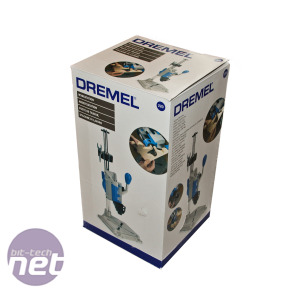
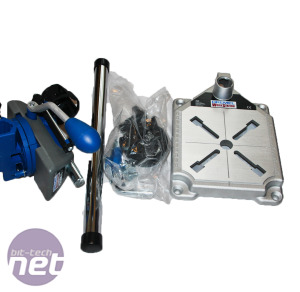
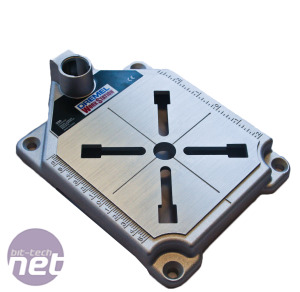
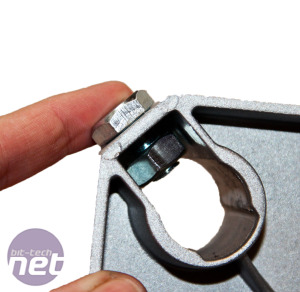
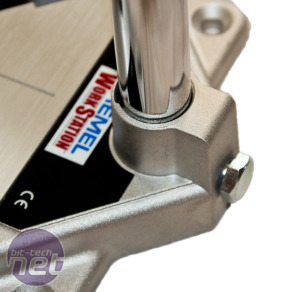
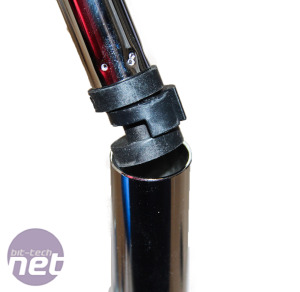







Want to comment? Please log in.